Tips For Cleaning Pool Grates
Maintaining a clean pool is essential for an enjoyable swimming experience, and one often overlooked aspect of pool maintenance is keeping your pool grates clean. Clean pool grates are crucial for efficient water circulation and overall pool health. Dirty grates can impede water flow, leading to poor filtration and increased chemical usage, which can affect both the water quality and the longevity of your pool equipment. In this post, we’ll explore various tips for cleaning pool grates, including the best tools and techniques to use, as well as how frequently you should perform this task to ensure your pool remains in top-notch condition. Whether you're a new pool owner or an experienced one, these tips will help you keep your pool sparkling clean and enjoyable for everyone.
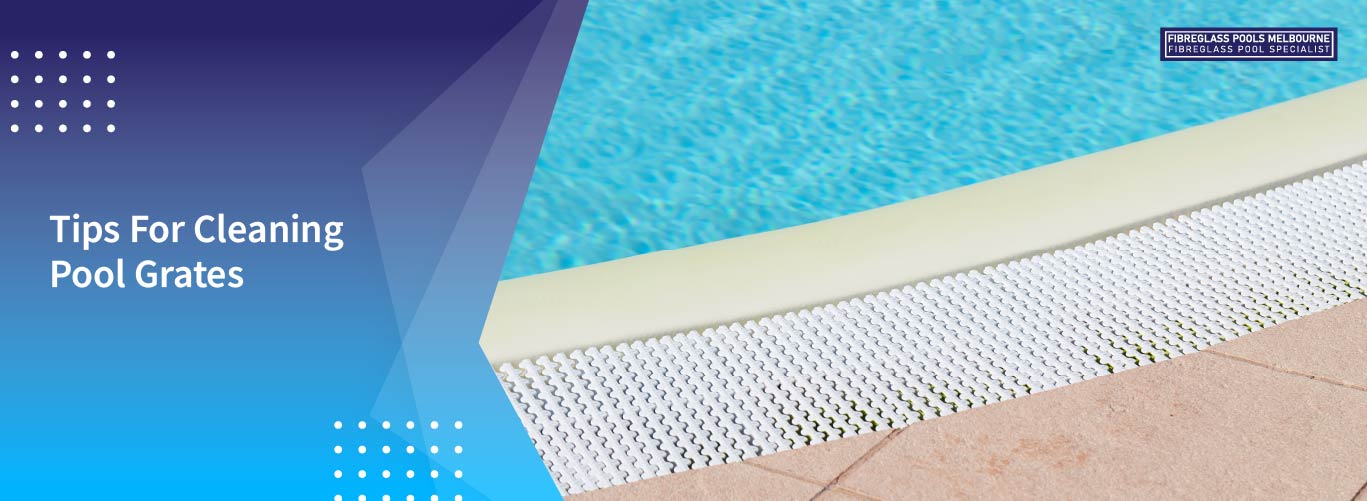
The Importance of Maintaining Clean Pool Grates
Pool grates play a vital role in maintaining the cleanliness and efficiency of your swimming pool. They help in water circulation by allowing water to flow into the filtration system, removing debris and contaminants. Without these grates, leaves, dirt, and other particles would accumulate, making the pool water murky and potentially hazardous for swimmers. Neglecting your pool grates can lead to clogged filters, reduced water quality, and increased wear on your pool’s equipment. Over time, this can result in more frequent repairs and higher maintenance costs.
Regular maintenance ensures that your pool grates function optimally, leading to a healthier and more enjoyable swimming experience. By keeping your pool grates clean and clear, you also extend the lifespan of your pool’s filtration system, saving you time and money in the long run.
Understanding Pool Grates
Types of Pool Grates
Pool grates come in various types and materials, each designed to suit different pool designs and needs. The two primary types of pool grates are:
- Main Drain Grates: Located at the bottom of the pool, these grates are essential for the pool’s primary circulation system. They help in drawing water from the pool into the filtration system, ensuring that the water stays clean and clear. Main drain grates also play a crucial role in maintaining proper water level and preventing the pool from overflowing.
- Skimmer Grates: Positioned around the perimeter of the pool, skimmer grates capture floating debris such as leaves, bugs, and other unwanted particles. They direct this debris to the filter, preventing it from sinking to the bottom and making pool maintenance easier. Skimmer grates are vital for surface cleaning, helping to keep the pool inviting and hygienic for swimmers.
Materials Used in Pool Grates
Pool grates are typically made from durable materials such as:
- PVC: Known for its durability and resistance to corrosion, PVC is a popular choice for pool grates.
- Stainless Steel: These grates are robust and can withstand harsh pool chemicals, though they may require more maintenance to prevent rust.
- Composite Materials: These offer a blend of durability and aesthetic appeal, making them a preferred choice for many pool owners.
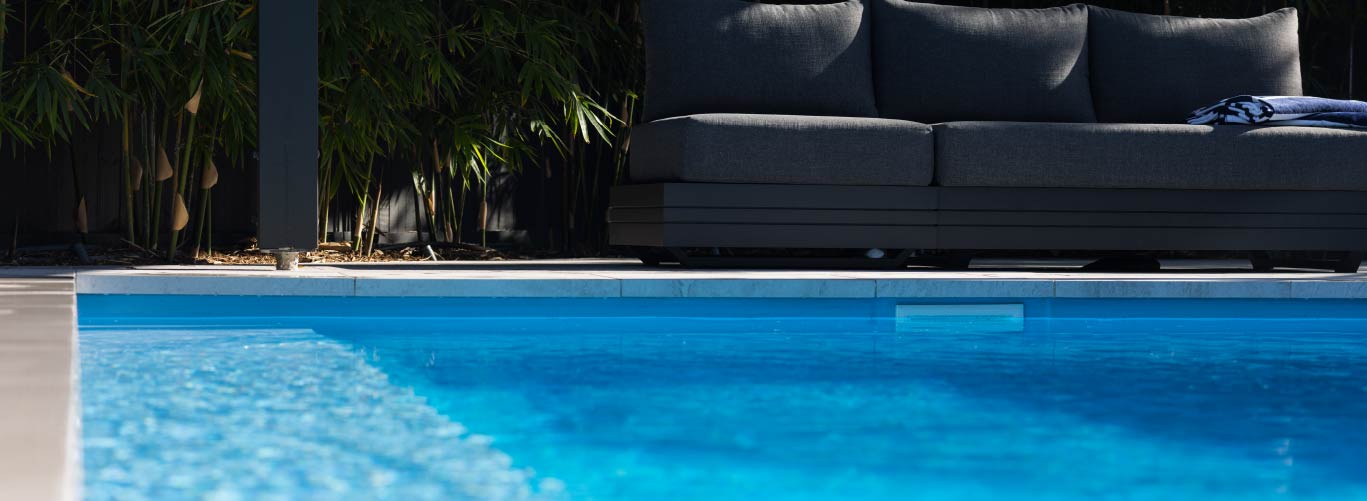
Signs of Dirty or Clogged Pool Grates
Identifying issues with your pool grates early can prevent major problems down the line. Here are some signs to watch out for:
- Reduced Water Flow: If you notice a decrease in water flow to your pool’s filtration system, it could indicate clogged grates.
- Increased Debris: A noticeable increase in debris floating in your pool might be due to obstructed skimmer grates.
- Unpleasant Odours: Stagnant water caused by clogged grates can lead to unpleasant smells emanating from your pool.
- Algae Growth: Dirty grates can contribute to algae buildup, affecting both the appearance and health of your pool.
Step-by-Step Guide to Cleaning Pool Grates
Cleaning your pool grates doesn’t have to be a daunting task. Follow these steps to ensure your grates are clean and functioning optimally:
Tools Needed
- Pool brush
- Screwdriver (if grates need to be removed)
- Hose with a high-pressure nozzle
- Pool cleaning solution
- Protective gloves
Safety Precautions
- Always turn off the pool pump before cleaning the grates to avoid accidents.
- Wear protective gloves to safeguard your hands from sharp edges and pool chemicals.
Cleaning Process
- Remove the Grates: Using a screwdriver, carefully remove the grates from their positions.
- Brush Off Debris: Use a pool brush to scrub off any visible debris and algae from the grates.
- Soak in Cleaning Solution: Soak the grates in a pool cleaning solution to break down any stubborn dirt and grime.
- Rinse Thoroughly: Use a high-pressure hose to rinse off the cleaning solution and debris.
- Reinstall the Grates: Once cleaned and dried, securely reinstall the grates back into their positions.
Maintenance Schedule
- Weekly: Brush off surface debris and check for signs of clogging.
- Monthly: Conduct a thorough cleaning as detailed above.
- Seasonally: Inspect the grates for any damage and replace them if necessary.
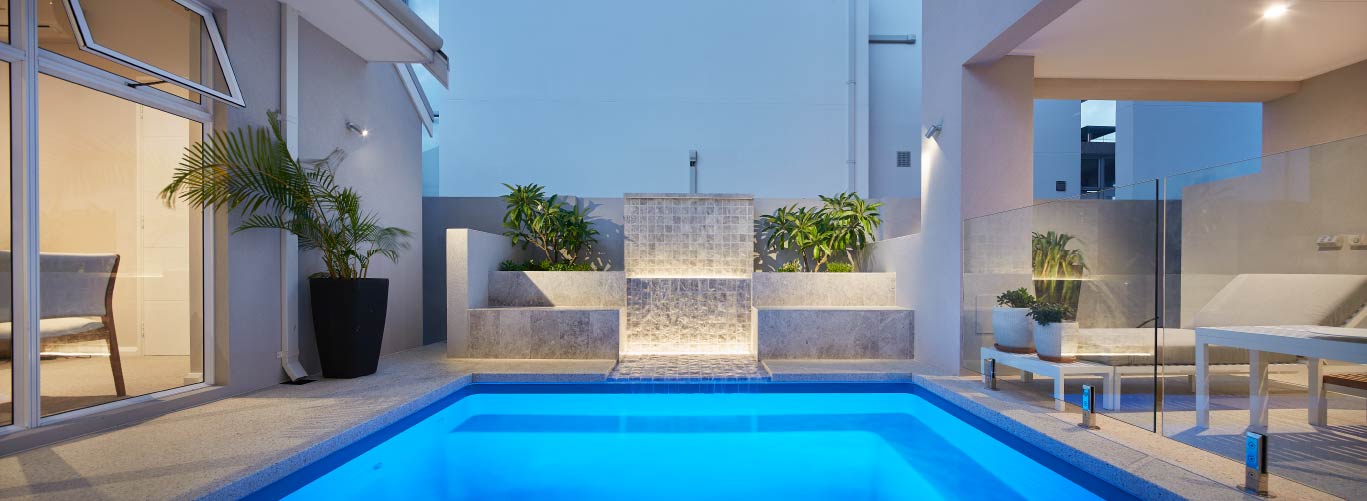
Preventative Measures for Keeping Pool Grates Clean
Regular maintenance and proactive care can significantly reduce the need for deep cleaning. Here are some preventative measures to keep your pool grates in top condition:
Routine Maintenance
- Regular Skimming: Skim the pool surface daily to remove floating debris before it reaches the grates.
- Use Pool Covers: Employ pool covers when the pool is not in use to minimise debris accumulation.
- Monitor Water Chemistry: Maintaining balanced water chemistry helps prevent algae and mineral buildup on the grates.
- Regular Inspections: Conduct routine inspections to identify and address potential issues early.
Proactive Care
- Invest in Quality Grates: High-quality materials are more resistant to wear and tear, reducing maintenance needs.
- Educate Pool Users: Inform pool users about the importance of not introducing foreign objects into the pool that could clog the grates.
- Professional Help: Consider periodic professional maintenance to ensure all components, including the grates, are in optimal condition.
Maintaining clean pool grates is essential for the overall health and efficiency of your swimming pool. By understanding the types and roles of pool grates, identifying signs of issues early, following a detailed cleaning process, and implementing preventative measures, you can ensure your pool remains in excellent condition. A well-maintained pool not only provides a healthier swimming environment but also enhances the longevity of your pool equipment.
So, take the time to implement these tips and enjoy a cleaner, more enjoyable swimming experience! Happy swimming!
Tips For Cleaning Pool Grates
Maintaining a clean pool is essential for an enjoyable swimming experience, and one often overlooked aspect of pool maintenance is keeping your pool grates clean. Clean pool grates are crucial for efficient water circulation and overall pool health. Dirty grates can impede water flow, leading to poor filtration and increased chemical usage, which can affect both the water quality and the longevity of your pool equipment. In this post, we’ll explore various tips for cleaning pool grates, including the best tools and techniques to use, as well as how frequently you should perform this task to ensure your pool remains in top-notch condition. Whether you're a new pool owner or an experienced one, these tips will help you keep your pool sparkling clean and enjoyable for everyone.
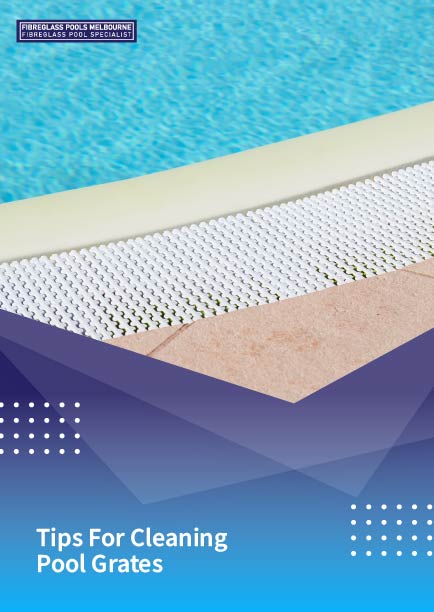
The Importance of Maintaining Clean Pool Grates
Pool grates play a vital role in maintaining the cleanliness and efficiency of your swimming pool. They help in water circulation by allowing water to flow into the filtration system, removing debris and contaminants. Without these grates, leaves, dirt, and other particles would accumulate, making the pool water murky and potentially hazardous for swimmers. Neglecting your pool grates can lead to clogged filters, reduced water quality, and increased wear on your pool’s equipment. Over time, this can result in more frequent repairs and higher maintenance costs.
Regular maintenance ensures that your pool grates function optimally, leading to a healthier and more enjoyable swimming experience. By keeping your pool grates clean and clear, you also extend the lifespan of your pool’s filtration system, saving you time and money in the long run.
Understanding Pool Grates
Types of Pool Grates
Pool grates come in various types and materials, each designed to suit different pool designs and needs. The two primary types of pool grates are:
- Main Drain Grates: Located at the bottom of the pool, these grates are essential for the pool’s primary circulation system. They help in drawing water from the pool into the filtration system, ensuring that the water stays clean and clear. Main drain grates also play a crucial role in maintaining proper water level and preventing the pool from overflowing.
- Skimmer Grates: Positioned around the perimeter of the pool, skimmer grates capture floating debris such as leaves, bugs, and other unwanted particles. They direct this debris to the filter, preventing it from sinking to the bottom and making pool maintenance easier. Skimmer grates are vital for surface cleaning, helping to keep the pool inviting and hygienic for swimmers.
Materials Used in Pool Grates
Pool grates are typically made from durable materials such as:
- PVC: Known for its durability and resistance to corrosion, PVC is a popular choice for pool grates.
- Stainless Steel: These grates are robust and can withstand harsh pool chemicals, though they may require more maintenance to prevent rust.
- Composite Materials: These offer a blend of durability and aesthetic appeal, making them a preferred choice for many pool owners.
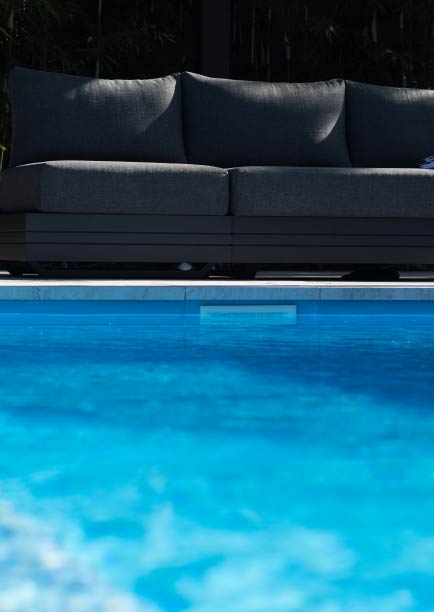
Signs of Dirty or Clogged Pool Grates
Identifying issues with your pool grates early can prevent major problems down the line. Here are some signs to watch out for:
- Reduced Water Flow: If you notice a decrease in water flow to your pool’s filtration system, it could indicate clogged grates.
- Increased Debris: A noticeable increase in debris floating in your pool might be due to obstructed skimmer grates.
- Unpleasant Odours: Stagnant water caused by clogged grates can lead to unpleasant smells emanating from your pool.
- Algae Growth: Dirty grates can contribute to algae buildup, affecting both the appearance and health of your pool.
Step-by-Step Guide to Cleaning Pool Grates
Cleaning your pool grates doesn’t have to be a daunting task. Follow these steps to ensure your grates are clean and functioning optimally:
Tools Needed
- Pool brush
- Screwdriver (if grates need to be removed)
- Hose with a high-pressure nozzle
- Pool cleaning solution
- Protective gloves
Safety Precautions
- Always turn off the pool pump before cleaning the grates to avoid accidents.
- Wear protective gloves to safeguard your hands from sharp edges and pool chemicals.
Cleaning Process
- Remove the Grates: Using a screwdriver, carefully remove the grates from their positions.
- Brush Off Debris: Use a pool brush to scrub off any visible debris and algae from the grates.
- Soak in Cleaning Solution: Soak the grates in a pool cleaning solution to break down any stubborn dirt and grime.
- Rinse Thoroughly: Use a high-pressure hose to rinse off the cleaning solution and debris.
- Reinstall the Grates: Once cleaned and dried, securely reinstall the grates back into their positions.
Maintenance Schedule
- Weekly: Brush off surface debris and check for signs of clogging.
- Monthly: Conduct a thorough cleaning as detailed above.
- Seasonally: Inspect the grates for any damage and replace them if necessary.
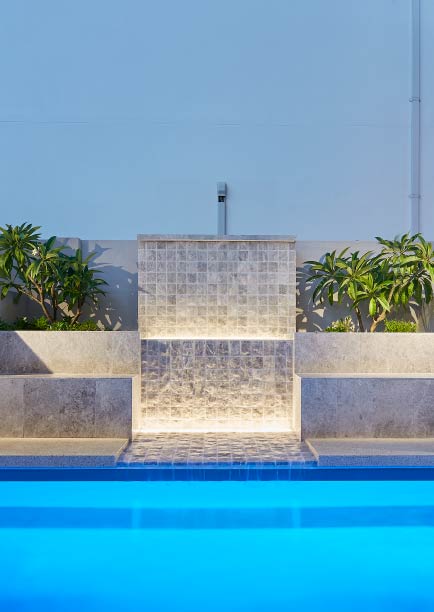
Preventative Measures for Keeping Pool Grates Clean
Regular maintenance and proactive care can significantly reduce the need for deep cleaning. Here are some preventative measures to keep your pool grates in top condition:
Routine Maintenance
- Regular Skimming: Skim the pool surface daily to remove floating debris before it reaches the grates.
- Use Pool Covers: Employ pool covers when the pool is not in use to minimise debris accumulation.
- Monitor Water Chemistry: Maintaining balanced water chemistry helps prevent algae and mineral buildup on the grates.
- Regular Inspections: Conduct routine inspections to identify and address potential issues early.
Proactive Care
- Invest in Quality Grates: High-quality materials are more resistant to wear and tear, reducing maintenance needs.
- Educate Pool Users: Inform pool users about the importance of not introducing foreign objects into the pool that could clog the grates.
- Professional Help: Consider periodic professional maintenance to ensure all components, including the grates, are in optimal condition.
Maintaining clean pool grates is essential for the overall health and efficiency of your swimming pool. By understanding the types and roles of pool grates, identifying signs of issues early, following a detailed cleaning process, and implementing preventative measures, you can ensure your pool remains in excellent condition. A well-maintained pool not only provides a healthier swimming environment but also enhances the longevity of your pool equipment.
So, take the time to implement these tips and enjoy a cleaner, more enjoyable swimming experience! Happy swimming!


